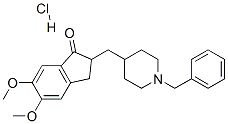A6657712
4-Pyridinecarboxaldehyde , 98% , 872-85-5
Synonym(s):
4-Pyridinecarbaldehyde;Isonicotinaldehyde;Pyridine-4-aldehyde, Isonicotinaldehyde
CAS NO.:872-85-5
Empirical Formula: C6H5NO
Molecular Weight: 107.11
MDL number: MFCD00006425
EINECS: 212-832-3
| Pack Size | Price | Stock | Quantity |
| 5G | RMB39.20 | In Stock |
|
| 25G | RMB90.40 | In Stock |
|
| 100G | RMB332.80 | In Stock |
|
| 500G | RMB1608.00 | In Stock |
|
| others | Enquire |
Update time: 2022-07-08
PRODUCT Properties
| Melting point: | -4--2°C |
| Boiling point: | 71-73 °C/10 mmHg (lit.) |
| Density | 1.137 g/mL at 20 °C (lit.) |
| vapor pressure | 0.02 hPa (20 °C) |
| refractive index | n |
| Flash point: | 130 °F |
| storage temp. | Store at +2°C to +8°C. |
| solubility | 20g/l |
| pka | 12.05(at 30℃) |
| form | liquid (clear) |
| color | clear brown-yellow |
| PH | 7-8 (H2O, 20℃)(saturated aqueous solution) |
| Water Solubility | 20 g/L (20 ºC) |
| Sensitive | Air Sensitive |
| BRN | 105342 |
| InChIKey | BGUWFUQJCDRPTL-UHFFFAOYSA-N |
| LogP | 0.12 at 30℃ and pH7 |
| CAS DataBase Reference | 872-85-5(CAS DataBase Reference) |
| NIST Chemistry Reference | 4-Pyridinecarboxaldehyde(872-85-5) |
| EPA Substance Registry System | 4-Pyridinecarboxaldehyde (872-85-5) |
Description and Uses
4-Pyridinecarboxaldehyde can be used for the synthesis of:
- ?,β-Unsaturated amides by coupling with N,N-disubstituted formamides.
- meso-Substituted A3-corroles.
- N-(4-pyridylmethyl)-L-valine as a ligand to construct zinc metal–organic frameworks (Zn-MOFs).
- 4′-Pyridyl terpyridines, with potential application as anticancer and antimicrobial agents.
- 4-pyridinecarboxaldehyde thiosemicarbazone, as a corrosion inhibitor for mild steel.
Safety
| Symbol(GHS) |   GHS05,GHS07 |
| Signal word | Danger |
| Hazard statements | H314-H317-H412 |
| Precautionary statements | P261-P272-P273-P280-P303+P361+P353-P305+P351+P338 |
| Hazard Codes | Xi,F |
| Risk Statements | 36/37/38-10 |
| Safety Statements | 26-36-36/37/39-16 |
| RIDADR | UN 1989 |
| WGK Germany | 1 |
| RTECS | NR9400000 |
| F | 8-10-23 |
| Hazard Note | Irritant/Keep Cold/Air Sensitive |
| TSCA | Yes |
| HazardClass | 3.2 |
| PackingGroup | III |
| HS Code | 29333999 |
| Toxicity | LD50 orally in Rabbit: 2355 mg/kg LD50 dermal Rat > 2000 mg/kg |



